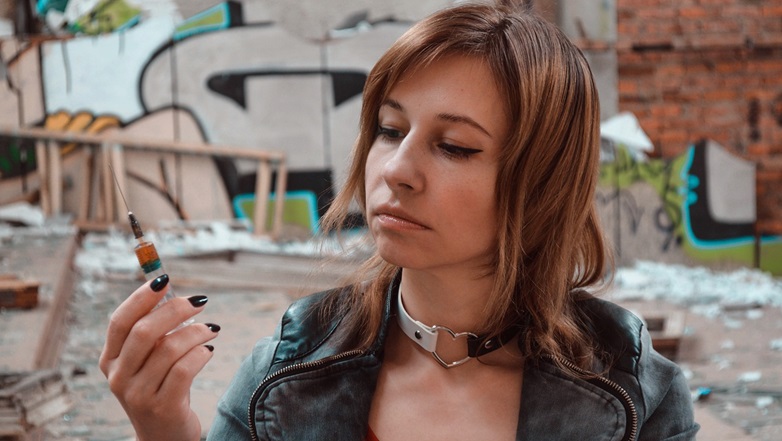
Jesus Didn’t Approve of Getting Stoned
Jesus straightened up and asked her, “Woman, where are they? Has no one condemned you?”
“No one, sir,” she said.
“Then neither do I condemn you,” Jesus declared. “Go now and leave your life of sin.”
From this, it’s evident that Jesus didn’t approve of getting stoned. Or—I should say, he didn’t approve of the woman getting stoned for her sin. Jesus knew that there was a better way.
Decriminalization and Grace
Of course, this doesn’t mean that Jesus approved of her adultery. Refusing to condemn someone does not equal validating their behavior. He never says adultery is morally right, or that the law should be changed in its favor. But he does decriminalize adultery. Jesus gives a nod to the law remaining on the books, but in the application of punishment, he gives grace.
Jesus knows something nobody else does. He knows the sins of the accusers, and the reasons behind the woman’s choice (if indeed it was a choice) to commit adultery. He understands her personal history and trauma, and all the factors that led up to the event. Perhaps she was trying to fill an emotional void caused by years of abuse. Or, maybe she turned to sex work as the only way to feed her children. Jesus recognizes the sexism inherent in the fact that her accusers want to punish her for the crime, but not her (probably) male sexual partner. This testifies to the fact that dominant members of the population always find it easier to target less powerful individuals in their application of “justice.” Jesus factors all these things into his decision to decriminalize her behavior and offer grace.
Decriminalization Removes Stigma
It’s also important that Jesus wants her to do better. In his refusal to condemn her, he offers an alternative. Knowing Jesus, the conversation didn’t stop here. “Go and leave your life of sin” was not a reprimand so much as an invitation, and Jesus never asks you to do something without providing the way to do it. By decriminalizing adultery, Jesus also removes the stigma that might create shame. Because he knows that shame is a major barrier to seeking the help necessary to improve. Jesus simply loves her, accepts her, and invites her to a better life. Then, through relationship, he provides a way.
Decriminalization Means Grace
Decriminalization means grace. This isn’t the same as legalization. The laws remain on the books, but law enforcement officers are told to exercise grace in the application of punishment. This is exactly what Jesus told the arresting officers who nabbed the woman brought before him. Sure, there’s the law—but let’s practice grace and then work toward changing behavior.
Restoration Instead of Retribution
For those who suffer from the disease of addiction, decriminalization means that we treat substance use disorder as an affliction rather than an offense. We understand that most substance use is less for recreational purposes than an attempt to self-medicate severe mental emotional pain and dysfunction. (If we normalized and subsidized mental health treatment, fewer people would feel the need to self-medicate.) Decriminalization means we offer a path to healing rather than the modern-day slavery system known as prison. It means we offer education rather than enforcement, and treatment instead of traumatization. By offering restoration instead of retribution, we follow the example of Jesus, who was for decriminalization.
Factors Leading to Drug-Related Deaths
By no means am I minimizing the harmful effects of addiction, or trivializing deaths from drug use. Each life lost to drug use is precious. But six factors lead to most deaths from drug use:
- Because of stiff penalties, drug users are unlikely to identify their use to their medical care providers. This results in a lack of education about proper use and harm reduction techniques.
- Uninformed or misinformed users often practice unsanitary injections, reuse needles, measure doses improperly, and choose unsanitary locations for use, due to the need for privacy.
- Criminalized drug use leads to unstable substances, which in turn leads to overdose.
- Criminalization of drug use means that incarcerated people often detox while in jail, only to use again when they get out. But after a significant time without using, the body’s tolerance decreases. This means when they ingest the same dose they took before incarceration, they overdose—often fatally. Decriminalizing drug use eliminates incarceration-related detox-overdose cycles.
- Criminalized drug use means that most folks are uninformed about how to help a person experiencing an overdose, which contributes to overdose-related deaths.
- Criminalization of drug use leads to long prison sentences for users. This contributes to overreactions among individuals facing arrest. Fear of stiff penalties causes unfortunate decisions to resist arrest. This in turn leads to extreme measures on the parts of both the offenders and the police, resulting in violence and death on both sides. (Not to mention racial disparities in law enforcement, but that’s another issue for a different day). Decriminalizing drug use reduces death in all these ways.
Stop the Stigma
In contrast to criminalizing drug use, decriminalization increases education, sanitation, and safe use. It decreases penalties that tear already-marginalized people from their families and communities. Bear in mind that I’m not advocating legalizing drug use, or decriminalization for drug producers, traffickers, or dealers. Neither am I suggesting that being under the influence in public, or operating a motor vehicle while under the influence, should be permissible. I’m simply suggesting that our laws regarding drug use be the same as for the consumption of alcoholic beverages. And that we stigmatize those who use drugs no more than we stigmatize those who consume alcohol.













